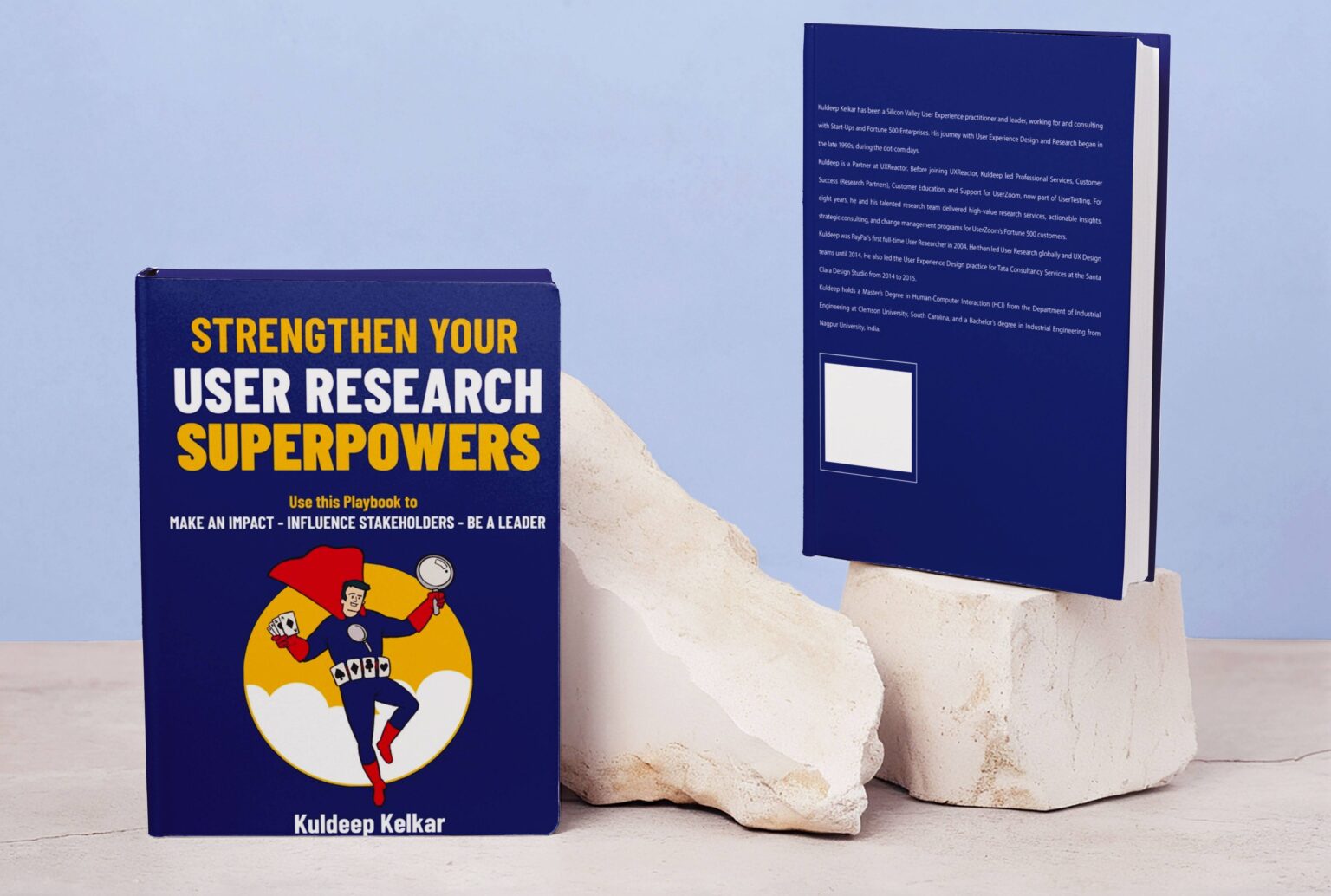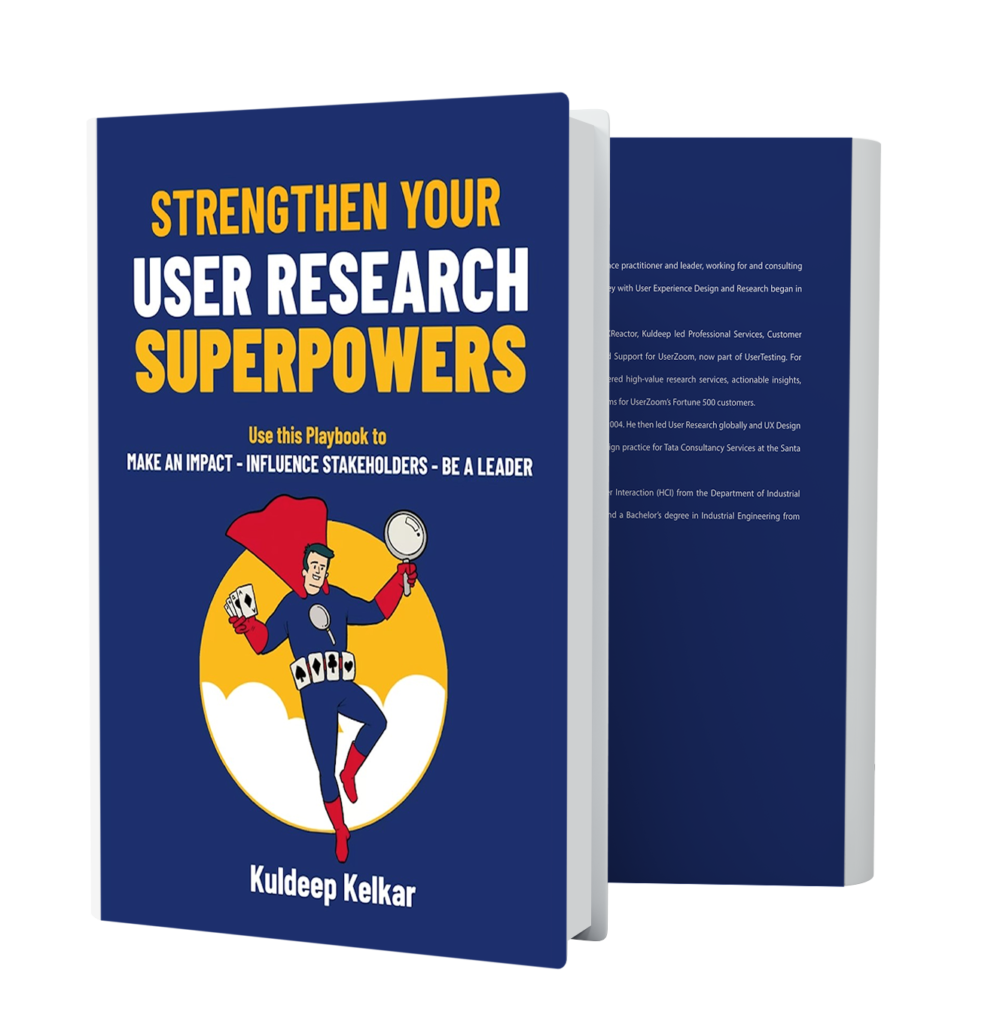
About The Book
By KULDEEP KELKAR
Many authors have written books about user research, focusing on conducting usability testing and data analysis or setting up user research practices. However, this book does not aim to teach you the basics of user research methods. Instead, this book offers practical tips, skills, and best practices, which I refer to as “superpowers,” to drive outstanding user experiences and make a significant personal impact within your organization.
To inform the design and development teams, user researchers aim to uncover deep insights about users’ behaviors, needs, preferences, and challenges. User researchers are trying to do the following:
◆Understand user needs, goals, and contexts of use.
◆Identify pain points throughout the user journey.
◆Gather feedback on existing products.
◆Validate concepts and designs through feedback on prototypes.
◆Inform design decisions.
◆Ensure accessibility and inclusion.
◆Foster a user-centric culture within organizations.
◆Anticipate future user needs.
However, over the last twenty-five years, I’ve observed user researchers across the industry facing challenges such as the following:
◆A negative perception of user research: It is often seen as slow and costly, leading to a lack of investment in and understanding of researchers’ value.
◆Difficulty demonstrating value: Researchers struggle to show the worth of their work to stakeholders, influence decision-makers, steer product direction, and prove return on investment (ROI).
◆Limited scope: Researchers are often confined to design validation and usability testing, missing opportunities for upfront discovery work.
◆Participant recruitment challenges: Finding the right participants at the needed cadence can impact research quality and speed.
◆Integrating user research within the product development life cycle (PDLC): Researchers face difficulties fully embedding user research into the PDLC, limiting the scope and impact of their activities.
This book is written to empower user researchers to amplify their influence within their organizations. By flexing their superpowers (each chapter is dedicated to one), user researchers can significantly contribute to their organizations’ success.


